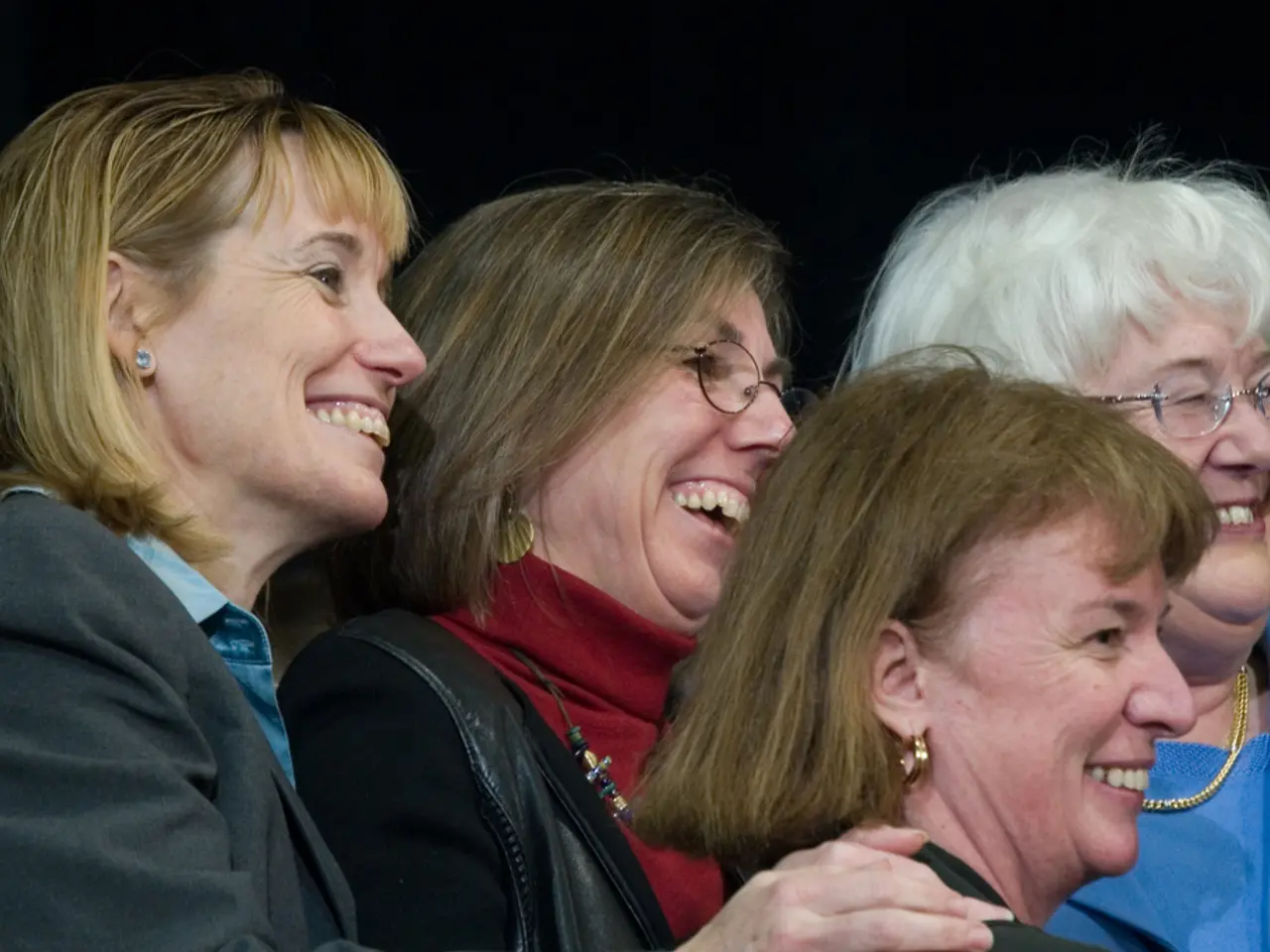Ensuring Elderly Involvement in Community Activities is Crucial in NRW
Germany Pushes for Digital Inclusion of Older Adults with New Initiatives
The German government is taking significant steps to ensure that older adults are not left behind in the digital age. SPD state parliamentarian Sonja Bongers has emphasized the importance of offering digital opportunities and qualifications for older people, highlighting the need for digital learning and experience centers to prevent exclusion from social life [2].
Bongers proposed the establishment of local service points for older people without online access or independent online service usage. These proposed local service points would also offer devices with internet access, enabling older individuals to use the internet and online services independently [2].
The German government has already launched several initiatives aimed at digitally including older people. The Federal Ministry for Senior Citizens (BMFSFJ) promotes the active participation of older adults in digital society by enabling them to acquire the necessary skills for using digital technologies safely and confidently [1].
A key program under this is the "DigitalPakt Alter" (Digital Pact for Older People), which has led to the establishment of around 300 local contact points or digital learning centers across Germany. Approximately 5,000 volunteers have helped around 64,000 older adults learn fundamental digital skills to navigate everyday tasks, like online banking or video calls [1].
Complementing this, the "Digitaler Engel PLUS" (Digital Angel PLUS) project deploys mobile advisory teams via two buses traveling across Germany, especially targeting rural areas. This initiative supports older adults directly in using digital technologies and also provides training courses for knowledge facilitators who further serve as local trainers and mentors, covering topics including digital education in old age, technology usage, and funding opportunities [1].
These programs highlight the focus on creating accessible digital learning environments staffed by volunteers and trained facilitators, ensuring older individuals not only gain skills but also ongoing support in becoming confident digital users [1].
Bongers suggested that municipalities should be supported by the state with a startup aid of at least three years for the establishment and qualification of digital learning and experience centers [2]. With sustainable offers planned and created with such support, these local service points are intended to assist older people in managing their daily lives more effectively and prevent them from being excluded from social life due to their lack of digital skills [2].
Many studies have shown that older people are at risk of being left behind by digitalization, and the proposed local service points are an additional measure to ensure the digital inclusion of older people in society [2]. The digital participation of older people is essential for managing their daily lives, and the establishment of these service points is an additional measure to ensure digital participation for older people [2].
References: [1] Bundesministerium für Familie, Senioren, Frauen und Jugend (2020). DigitalPakt Alter. Retrieved from https://www.bmfsfj.de/digitalpakt-alter/ [2] Rheinische Post (2021). SPD-Abgeordnete Sonja Bongers fordert Digital-Chancen für Ältere. Retrieved from https://www.rheinische-post.de/politik/spd-abgeordnete-sonja-bongers-fordert-digital-chancen-fuer-aehlere-37373615
The German government's focus on digital inclusion of older adults includes the establishment of local service points, offering devices with internet access and providing opportunities for digital learning, ensuring technology usage is accessible for all older individuals [1, 2]. To advance digital participation for older people, municipalities could be supported by the state for at least three years, fostering the establishment and qualification of digital learning and experience centers with sustainable offers [2].




